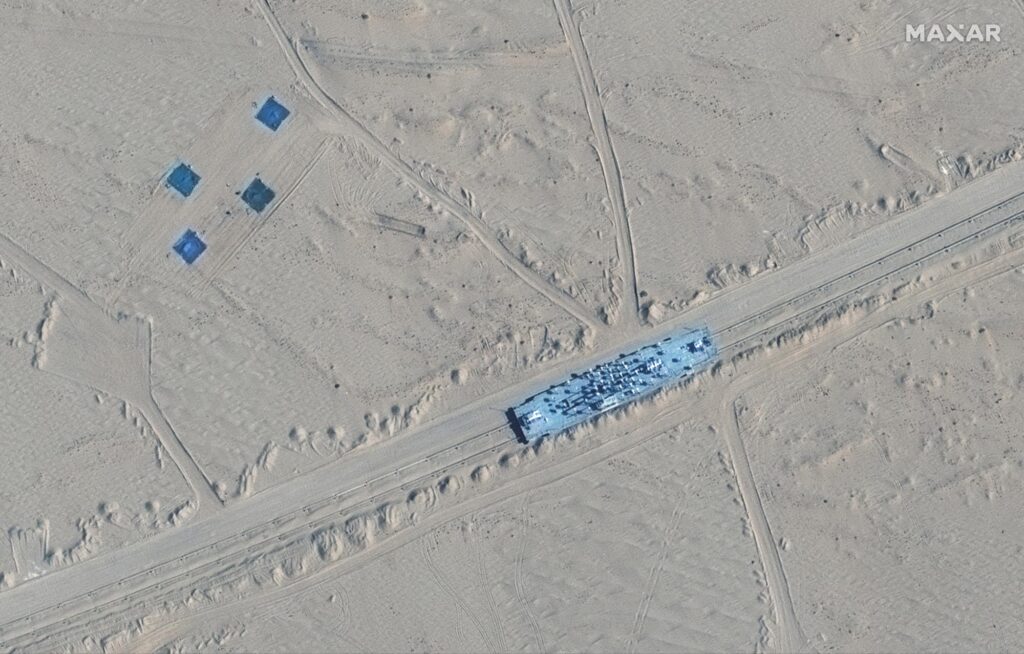As the conflict between Ukraine and Russia escalates, the world is gravitating towards a conflict on the scale of World War II, as there is the possibility that the greatest military and economic powers on the planet will clash in open and devastating war.
It may seem like science fiction to think that humans could extend an armed conflict outside our planet, in a space war, but the fact is that it is already happening.
Eyes in the Sky
"If the enemy is strong on all sides, be prepared. If he has superior strength evade him? Attack where he is unprepared, appear where you are not expected". Tsun Zu, The Art of War, 5th century BC.
It was the invention of radar that changed the face of air combat in World War II. England erected a wall of radio bases that enabled them to detect Nazi aircraft before they reached their territory. Wherever the Germans attempted an attack, they found the Royal Air Force ready to meet them in the air.
This is a small example of the importance of intelligence and reconnaissance in armed conflict.
Of course, in the 21st century we have left radar behind to give way to satellites that reveal every corner of our planet in real time and in full color.
The Union of Concerned Scientists UCS, which is an organization of scientists and engineers who seek to develop and implement practical and innovative solutions to solve some of the planet's most pressing problems, such as reducing the threat of nuclear war, among others, estimated the existence of 6,542 satellites around our planet in 2021, of which only 3,372 are actively operating.
This means that there are thousands of satellites constantly transmitting information and images to the earth.
One cannot imagine a scenario in which the national army of one of the military powers of our planet advances or plans an attack with thousands of eyes in the sky transmitting its every move. That is why, in November last year, Russia conducted a test and demonstration of an anti-satellite missile - ASAT - aimed at one of its inactive satellites.
China, the U.S. and India also possess anti-satellite weapons, but they are not the only ones interested in the militarization of space; France and England have begun to discuss defensive space policies.
Experts anticipate that these discussions will forge international space treaties, thereby initiating regulations in Earth orbit.
Former U.S. President George W. Bush contemplated a budget split for the Missile Defense Agency (MDA) to build an orbital weapons network. Its aim was to intercept "enemy" missiles as well as to shoot down other satellites.
The budget proposal was denied by the U.S. Congress in 2009 for being "too futuristic" and "underdeveloped" as stated in the Arms Control Association report.
The scientific community warned at the time that the creation of orbital or space weapons would mean the beginning of an unprecedented arms race. But above all, it would jeopardize the security of U.S. satellites and communications, as well as that of its allies.
And the problems arising from a first off-Earth war involve a serious threat of creating space debris. Any object that is set in motion in space will continue to move until it is attracted by the gravity of a planet or collides with another object. In this sense, any debris that enters Earth orbit increases the possibility of damaging satellites, space stations and generally increasing the risk of collisions in any future space incursion.
The cold war didn't go away, it just changed borders
"To introduce the principle of moderation into the theory of war itself will always lead to absurdity" ?Carl von Clausewitz, Of War, 1832?
After the fall of the Soviet Union, an era of nuclear tensions seemed to be over. We emerged from a world overshadowed by fear of the atom with an attitude of hope for the future and international cooperation. We were no longer divided but unified under a single doctrine of world trade and cooperation.
The International Space Station was one of the key moments of this dream of prosperity. Space then belonged to no nation, the final frontier would be explored by humanity as a whole as we approached the edge of the unknown.
However, the conflict between Ukraine and Russia has not only revived distrust between neighbors with weapons of mass destruction, it has also put the question of who owns space back in people's minds. Is it an act of aggression to place military satellites over another country? Where does a nation's sovereign area end? Are there Chinese satellites spying on us right now?

You may be interested in: The metaverse: virtual reality, video games and NFTs


